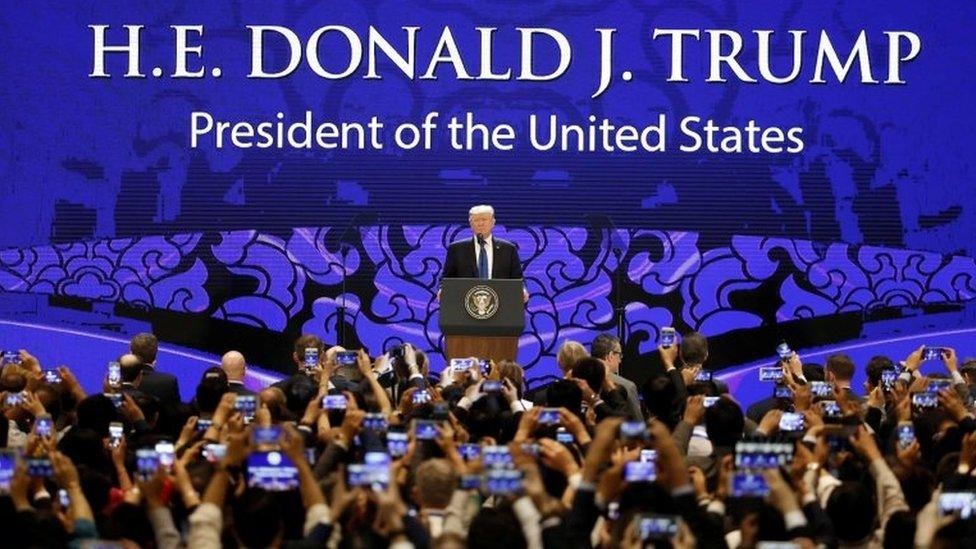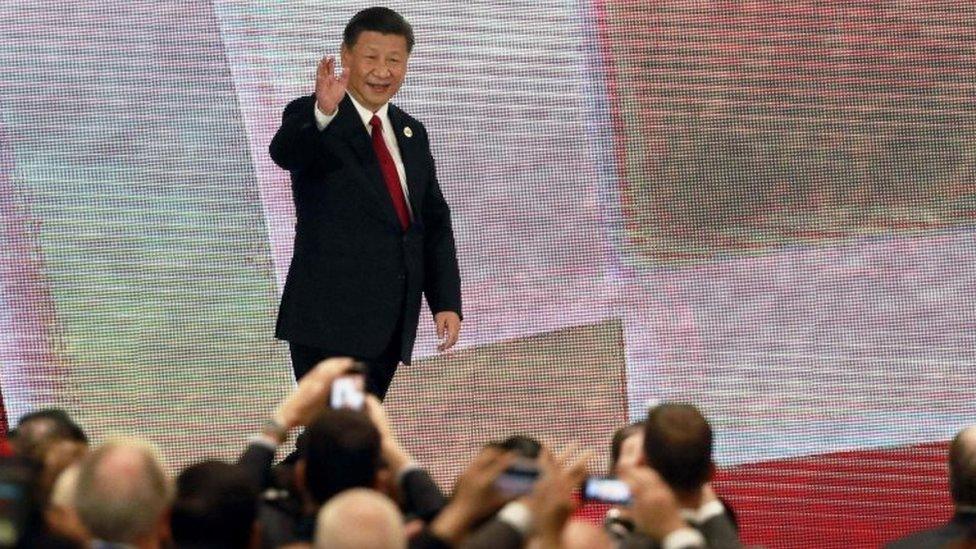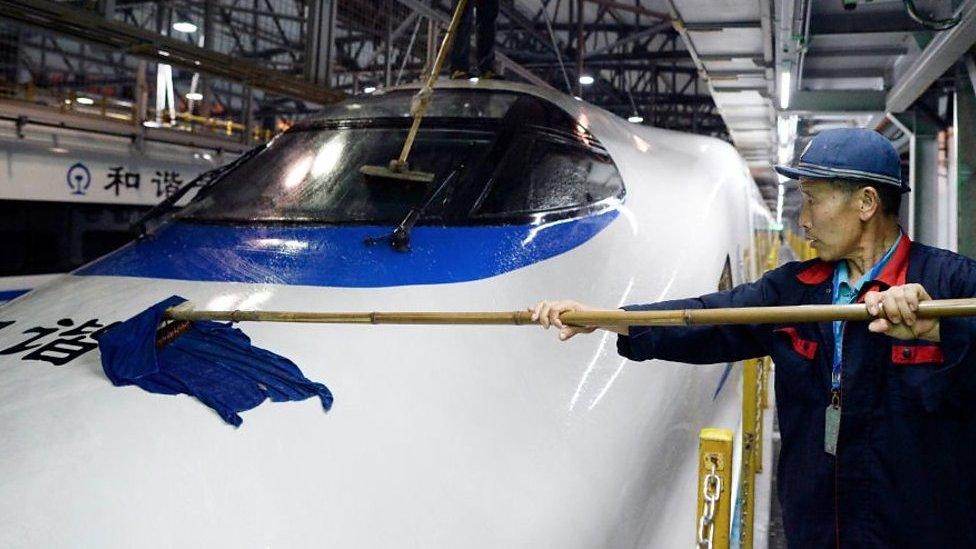Trump at Apec summit: America First, or the Chinese Dream?
- Published

President Trump's address was met by a mainly silent audience at the Asia-Pacific summit
America First, or the Chinese Dream? Take your pick.
The leaders of the two biggest economies in the world presented vastly different visions of the future, and their roles in the Asia Pacific region.
US President Donald Trump went first, addressing the packed audience at the Asia-Pacific Economic Co-operation (Apec) summit in Vietnam, whose members bring about 60% of the world's GDP.
Defiant and bombastic, he said the US will no longer tolerate chronic trade abuses, and that free trade had cost America millions of jobs.
It was a speech signalling that Donald Trump is putting America first - but perhaps he is not as concerned about American leadership in the region.
It was the harshest language President Trump has used on his Asia trip on trade.
He repeated the statement he made in Beijing, saying that it's not the fault of countries like China - but instead previous administrations are to blame.
But President Trump was clear - he wants bilateral trade deals, and large, multilateral arrangements don't work for him.
This was a speech saying that America is open for business, but on its own terms.
President Trump received some applause during his speech, but nowhere near as much as Chinese President Xi Jinping.
He took on the role of the global champion of globalisation, saying it was irreversible.

Xi Jinping did not respond to Trump's comments on trade, but voiced support for globalisation and multilateralism
President Xi also spoke about the digital economy, quantum science, artificial intelligence - presenting a vision of the future that is connected, and comprehensive.
When he talked about multilateralism and free trade as the cornerstones of Asian growth, he received a round of applause.
He took the opportunity to laud the initiatives of China's One Belt One Road policy, saying that it may be a Chinese initiative but that it is one that will be good for the world.
What China's One Belt, One Road really means
This was China's coming out party - again. Increasingly whenever you see Xi Jinping on the international stage he is the poster child for free trade and globalisation. Ironic, given that China itself has yet to become a fully free economy.
In a sign of things to come, and how deferential Asian leaders are to him, President Xi received a standing ovation for his remarks - but only after the MC at the event told everyone to give him one.
Which they did.
It's a topsy turvy world.
As President Xi said, "openness brings progress, self seclusion leaves one behind".
It's not hard to guess who he might have been talking about with that statement.
The US was the architect of many of the multilateral and free trade agreements in Asia. Under its tutelage, many of these Asian countries opened up and reformed - playing by America's rules.
And let's not forget the US is still a major trading partner for many of the countries in Asia.
But under Donald Trump, that leadership role has gone into reverse.
Which has left China with a gaping hole to fill - and one it is only more than happy to take on.
- Published9 November 2017
- Published25 October 2017
- Published12 May 2017
